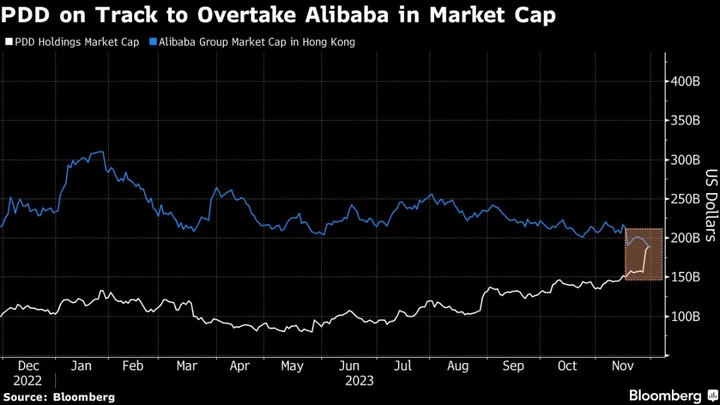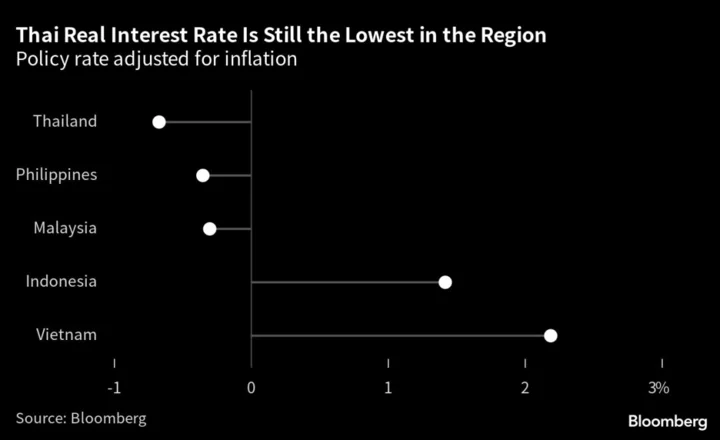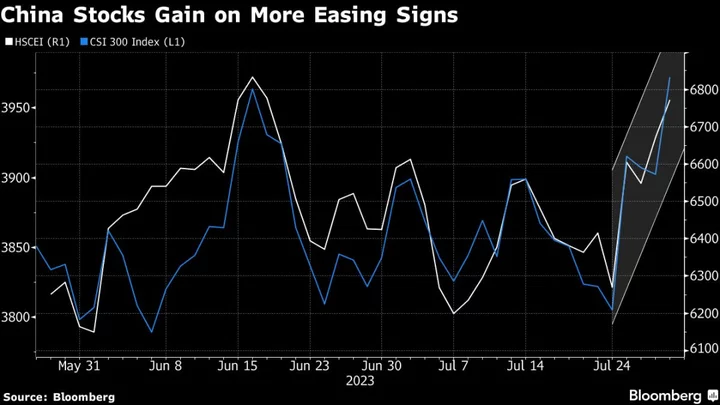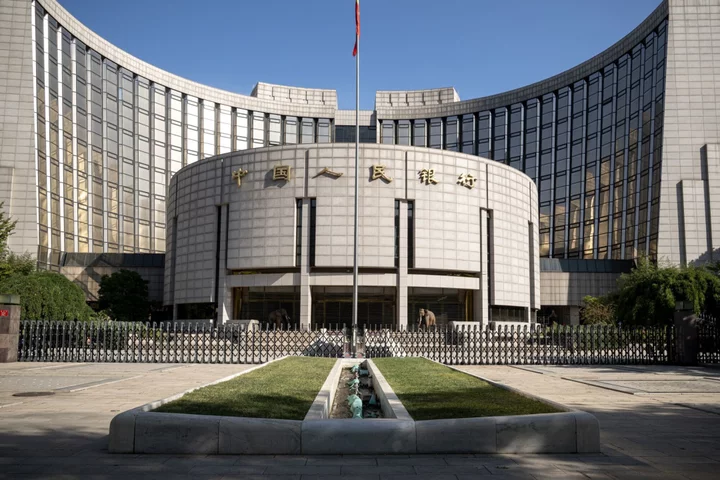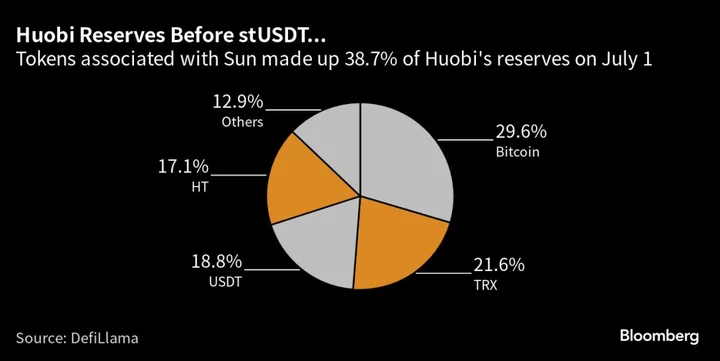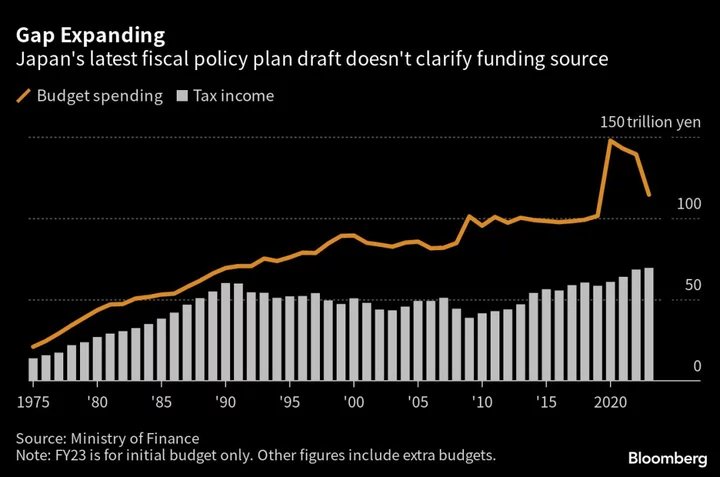Alibaba Group Holding Ltd. is set to lose its position as China’s most valuable e-commerce firm to eight-year-old upstart PDD, a watershed moment for an internet industry that Jack Ma’s iconic firm dominated for more than a decade.
Alibaba slid as much as 1.4% in Hong Kong, putting its market value at about HK$1.46 trillion ($187 billion) and on track to close below US-listed PDD Holdings Inc.’s $188.3 billion, according to Bloomberg calculations. PDD, the company best known for hit US shopping app Temu and domestic bargains trailblazer Pinduoduo, closed nearly 2% higher in New York on Wednesday.
The once-inconceivable shift reflects the turmoil that engulfed Alibaba after Beijing in 2020 targeted the company and its once-outspoken co-founder, kicking off a sweeping crackdown on the powerful tech sector. It also signals the rise of a generation of upstarts from PDD to ByteDance Ltd., which are disrupting the traditional arenas of social media and e-commerce.
On Wednesday, Alibaba’s billionaire co-founder Ma stunned employees when he took to an internal forum both to praise PDD and exhort his company’s 220,000-plus staff to “correct course” and retake the momentum. To many observers, his call to arms — after three years of largely staying in the background — underscored the gravity of the situation.
“On hindsight, you can say that Alibaba was resting on its laurels given they had so much of a headstart but they didn’t execute or innovate as fast,” said Vey-Sern Ling, managing director at Union Bancaire Privee. “When anti-monopoly came up and they couldn’t use their size to compel merchants to their platforms, they were suddenly caught flat-footed.”
Read More: Jack Ma Returns to Rally Troops After Alibaba’s Troubles Deepen
Alibaba, once China’s best candidate to become a trillion-dollar company, is trading around its lowest this year, at a fraction of its peak in 2020. The company is navigating turbulence both internally and externally, as a weaker-than-anticipated Chinese economic recovery and PDD undermine its once-dominant online retail business.
The company itself has endured upheaval, starting with the announcement of a plan to break up the corporation into six smaller pieces. Then-Chief Executive Officer Daniel Zhang stepped down and the company brought in two longstanding Ma confidantes, Joseph Tsai and Eddie Wu, to run the group. Months later, the pair announced they were shelving the much-anticipated spinoff and listing of its $11 billion cloud arm, a stunning about-face that called into question the company’s direction.
At the other end, PDD has captivated investors with a combination of stunning growth and aggressive global expansion. The market has chosen to overlook rising marketing costs, which have pressured margins.
This week, the company founded by billionaire Colin Huang surged 18% after reporting a stronger-than-anticipated doubling in revenue, driven by the success of Temu as well as inroads at home.
PDD’s growth far outpaced Alibaba’s, underscoring how it used promotions to woo bargain-seeking consumers at a time of economic uncertainty. During the just-concluded Singles’ Day shopping festival, PDD likely racked up 20% growth in transactions versus its rivals’ single-digit rises, Goldman Sachs estimated.
Part of that meteoric ascent stems from Temu, which in just over a year has overtaken Shein in sales and is now regarded as one of the more disruptive forces in global e-commerce. The site — which follows the same strategy of cut-rate pricing employed by Shein as well as PDD’s own Pinduoduo — has expanded into scores of countries.
In contrast, Alibaba first explored overseas markets with AliExpress, the sourcing platform Alibaba.com and then later international subsidiaries such as Lazada and Trendyol. But the Chinese business remains by far its biggest revenue contributor despite years of effort.
“One can argue that Alibaba had its chance and didn’t take it,” Ling said. “But in recent quarters, actually Alibaba’s international business has been growing very fast as well so I think they’re stepping up efforts there.”

